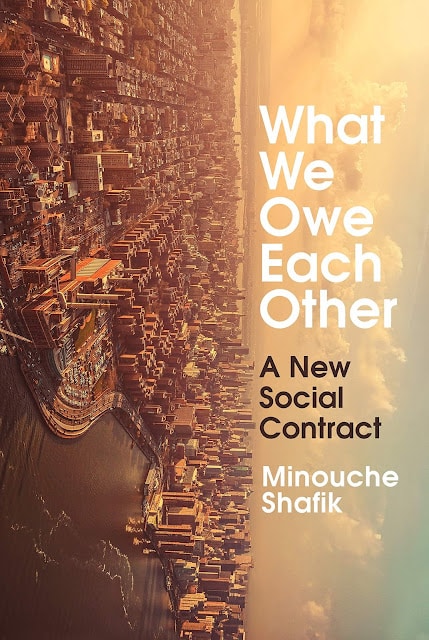The purpose of education has always been to prepare students for the life ahead of them. How best to do that remains contested (we can, for example, identify largely conservative and largely progressive views in many aspects) but most of us would agree that the purpose of school is not just to be good at school. Instead, it has to be a reflection of the needs and aspirations of families and our broader society. This is an enduring cross-cultural truth, as expressed by John Dewey in 1934: This was the purpose of the education given to a little aboriginal in the Australian bush before the coming of the white man. It was the purpose of the education of youth in the golden age of Athens. It is the purpose of education today, whether this education goes on in a one-room school in the mountains of Tennessee or in the most advanced, progressive school in a radical community. But to develop into a member of society in the Australian bush had nothing in common with developing into a member of society in ancient Greece, and still less with what is needed today. Any education is, in its forms and methods, an outgrowth of the needs of the society in which it exists.
Of course, this raises the issue about what we need in our society, and so each generation rightly questions the purpose and methods of education. At any given time, there are many threads in the conversation; currently the intertwined issues of mental-health, sustainability, globalisation, social media, technology and DEIJ, AI are prominent – but these are themselves entwined with other social issues and perhaps a reaction to broader social changes.
Minouche Shafik examines the broadest view in her marvellous book What We Owe Each Other by placing the whole enterprise of education in the broader political context of the social contract (great video interview here). The social contract is the set of formal and informal arrangements and relationships that establish how individuals, businesses, civil society and the state interact on a daily basis and across generations – to create a society that hopefully generates great mutual benefits. So the social contract consists of, for example, how schooling is arranged, what powers the police have, whether there is National Service, the extent to which health services are public or private, environmental protection, how elections run, how taxes fall on companies and individuals, how these taxes affect rich and poor, how labour is taxed in relation to capital … and so on. Debates about each of these individual topics are political matters, and the social contract itself is the sum total of all these and many other arrangements. The social contract as a whole captures what does not work in failed states, and also what is currently working well in, for example, the Scandinavian countries, or here in Singapore.
Once named, it’s clear that the social contract is based on a whole set of expectations and assumptions: Until the late 20th century, social contracts were built on the premise that families would have a sole male breadwinner, and that women would take care of the young and the old. There was a general presumption that people would stay married until they died and give birth to children only when married. They would have steady employment with very few employees over a career, and the education and skills accumulated in school would be enough for a lifetime. Most would have only a few years of retirement, and the support needed in old age would be provided by families. We might add to this the assumption that most people live near to their workplace, or at least within the country they were born; that these countries are stable; that the climate is constant; that natural resources are infinite.
Recent decades have invalidated all these assumptions, and Shafik joins the dots to connect this to many of today’s challenges. The book was written in 2021, but since then and certainly post-US election, we can see themes relating to the political polarisation now prevalent in so many countries. It’s fascinating that Shafik’s (left-ish) analysis aligns with the (very right-wing) so-called Breitbart Doctrine that politics is downstream from culture. From very different starting points, Shafik and Breitbart would both identify the foundational importance of the economic aftermaths of the financial crisis in 2008 and the coronavirus pandemic, the DEIJ culture wars, the backlash against globalisation and technology, the youth protests about climate change, the rise of corporate power and of course, the changing (social) media landscape. That the impulses from these factors in contradictory and confusing is itself a further impulse; and all may factors behind the move toward populism.
For Shafik, the cultural changes are so deep and broad that a new social contract – a new set of expectation and agreements – is needed. What would it look like? Shafik suggests three principles that should guide us in designing a new social contract:
- First that everyone should be guaranteed the minimum required to live a decent life. This minimum should include basic healthcare, education, benefits associated with work and pension that protects against poverty in old-age.
- Second everyone should be expected to contribute as much as they can and be given the maximum opportunities to do so with training throughout life, later retirement ages and public support for childcare, so women can work.
- Third the provision of minimum protections around some risks such as sickness, unemployment and old-age, are better shared by society rather than asking individuals, families or employees to carry them.
Shafiq sketches these out how these principles would manifest in education, health, employment, old age and family living. Some countries’ politics (and not necessarily only those one might expect) seem aligned with these goals; in others the goals seem remote and idealistic, perhaps naive, and perhaps not even in line with what the majority of people have even come to expect as a result of culture shifts. But that doesn’t mean the goals are wrong; it seems to me that they should remain alive for those of us that might believe in them – even if they are for a while unpopular, surely they are worth fighting for. In any case Shafik’s work as Deputy Governor of the Bank of England, Director of the London School of Economics, President of Columbia University, vice president at the World Bank and as a deputy managing director of the International Monetary Fund suggest they are based in deep pragmatic understanding as well as idealistic aspiration.
It seems to me that for educators to take these principles seriously would mean for us to do for our students what this book does so elegantly for the reader; to allow us to take the ‘big view’ of what it means to exist in a modern, interconnected society; to bring us face to face with the realisation that we (our descendents) will ultimately have nothing individually unless we manage to look after the collective; and to challenge us to reform a system that may have lifted billions from poverty, but that has not yet convinced everyone that it can meet the sustainable needs of all. Most of all this book draws our attention to the many valuable social goods that we take for granted; and serves as urgent reminder that they have been hard-won and are not guaranteed to continue – let alone improve – unless we are aware of them, and can persuade skeptics of their value.
This is a book for anyone concerned with the political and social worlds our children and grandchildren will inherit.
Reference
- Dewey, J (1934) Individual Psychology and Education. The Philosopher Vol 12
- Shafik M. (2021) What we Owe Each other: A New Social Contract. Penguin.
- Wikipedia (n.d.) Andrew Breitbart



